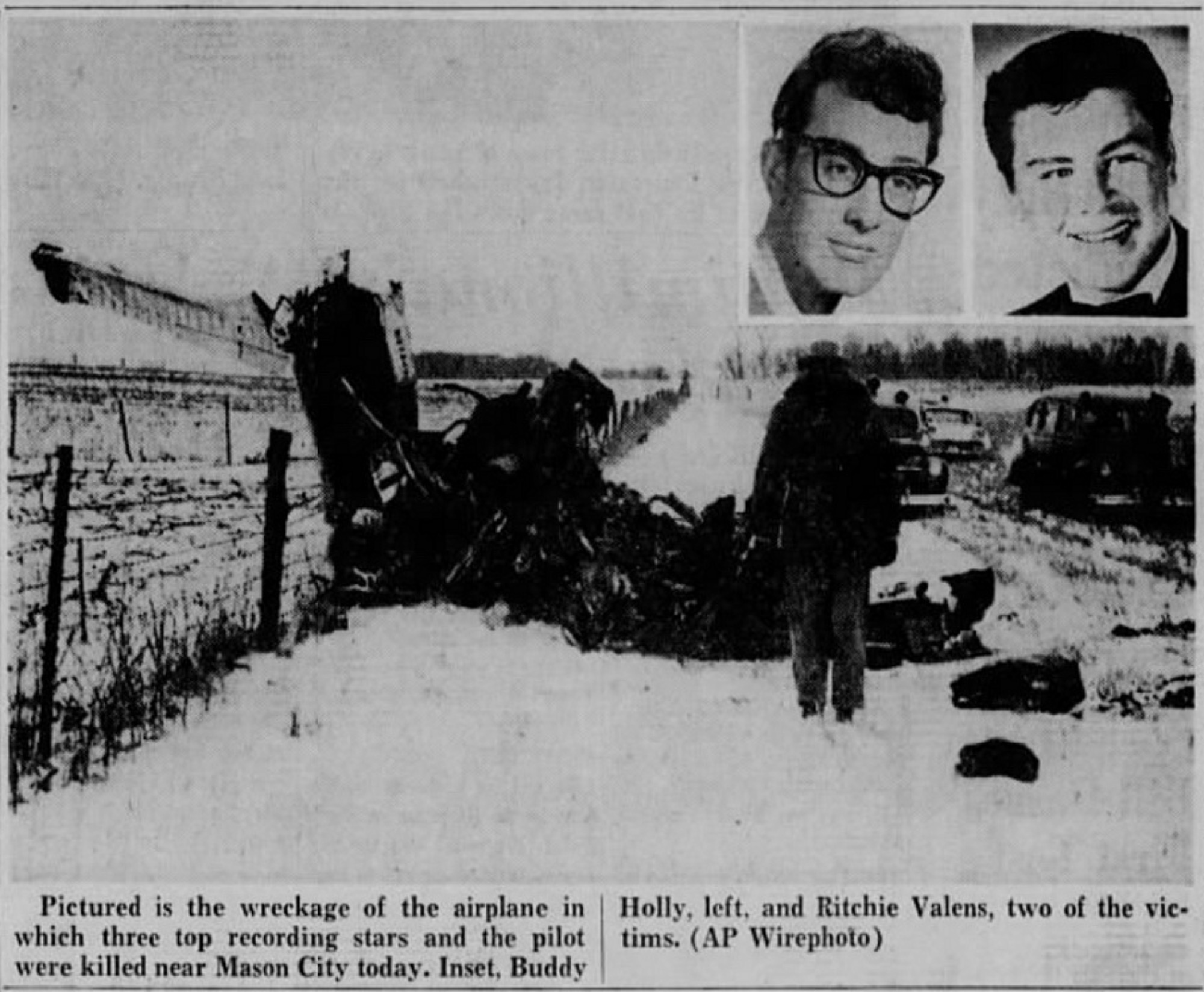The Day The Music Died
An Upcoming Tour
Buddy Holly was eager to end the brutal Midwest tour in 1959 and see his pregnant wife. The “Winter Dance Party” trek across Iowa and surrounding states had been miserable due to old unreliable buses and freezing weather conditions. Artists like Buddy Holly, Ritchie Valens, and JP Richardson nicknamed “The Big Bopper” endured long journeys in cramped buses with little rest between performances. Many fell ill from the harsh traveling and quickly wanted the tour to conclude.

A Tragic Charter Flight
Too exhausted to continue bus travel any longer, Buddy Holly chartered a small plane to fly him and members to Minnesota for their next show stop. The four-seater plane could only hold the pilot and three passengers, so Buddy selected his bassist Waylon Jennings and guitarist Tommy Allsup to join. Drummer Carl Bunch stayed due to injured feet. However, The Big Bopper’s flu and Ritchie Valens’ request caused a last-minute switch, placing all three musicians aboard the fateful flight.
A Pilot’s Inexperience
The pilot, 22-year-old Roger Peterson, lacked sufficient flight experience, especially in inclement conditions. Snow and dense fog blanketed the night skies as take-off commenced near 1 AM in Clear Lake, Iowa. Peterson did not possess the necessary instrument certification to navigate without visual cues. As the plane climbed through the darkness, it’s believed the lack of horizon visibility led Peterson to incorrectly think he maintained level flight when the aircraft slowly veered downward instead.
A Tragic Discovery
The aircraft crashed into a cornfield outside of Clear Lake after losing control in the low visibility. The force was so violent on impact that all four souls perished instantly. Their scattered remains were not found until daylight hours revealed the gruesome scene. Three immensely talented young rock stars and a pilot lost their lives that snowy evening, ending the music careers and lives of artists who left an indelible mark on the genre. The news brought disbelief and mourning around the world for the loss now immortalized as “The Day the Music Died.”
Paying Tribute to Legacies
While their lives ended abruptly, the musical legacies of Buddy Holly, Ritchie Valens, and The Big Bopper live on in tribute. Generations of fans and artists continue finding inspiration from their seminal songs and pioneering sound. Don McLean memorialized the crash in his iconic song “American Pie” with the poignant lyric “the day the music died.” Over 60 years later, their influences still reverberate through modern rock and roll. Though gone too soon, these talented musicians left an enduring mark and remain beloved figures in music history.
Preventing Future Tragedies
The small plane crash was a tragic yet teachable accident that led to improved aviation safety standards. It highlighted issues like inadequate pilot certification requirements, lack of flight protocols in poor weather, and proper aircraft instrumentation. Reforms addressed these shortcomings to prevent future loss of life. While nothing can undo that fateful night, honoring the legacy of those who passed helps justify progress made in their memory. The aviation industry works tirelessly to learn from accidents and bolster safety, so artists may continue inspiring generations with their creative gifts.
Conclusion
On February 3rd, 1959, rock lost three of its brightest rising talents in Buddy Holly, Ritchie Valens, and The Big Bopper. Though just starting their careers, they left an indelible mark through songs, style and influence that still resonates powerfully today. While their lives were cut short in a preventable plane crash, their musical legacies are immortal. Each year, fans and artists worldwide commemorate the lives and artistry of these gifted musicians who helped shaped modern music itself. Though the music may have died that fateful night, their songs and spirit live on forever.
